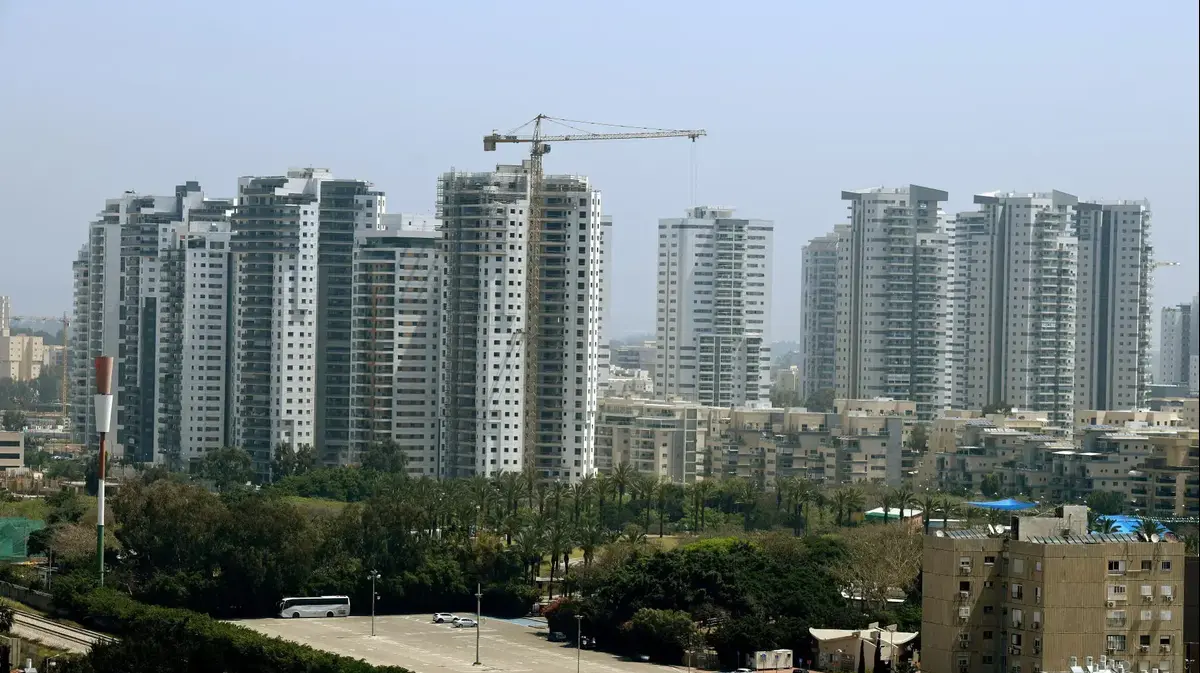news
News in Israel
Events in Israel
A decade of social protest
"I work all my life and know there is no chance": a decade of social protest, the dream of an apartment continues to fade
Housing prices in Israel have jumped more than 214% since the 2008 crisis, and today about 150 salaries are required to buy an apartment - double the OECD average.
When demand is at its peak, supply is low and government policy is not decisive, the middle class is becoming discouraged: "It cannot be that even for ordinary apartments we will be enslaved"
Tags
housing
Young couples
Apartments
The social protest
Sonia Gorodisky
Friday, July 16, 2021, 9:45 p.m.
Share on Facebook
Share on WhatsApp
Share on general
Share on general
Share on Twitter
Share on Email
0 comments
The Central Bureau of Statistics announced last night (Thursday) that housing prices in Israel have jumped by 7.2% at an annual rate, so that since the economic crisis of 2008, housing prices in Israel have doubled and jumped by more than 214%.
As a result, it now takes close to 150 months of salary to purchase an apartment - double the average in OECD countries.
This is an unrealistic number for young couples, many of whom feel that the dream of building or buying a home in Israel is receding.
The data should be of great concern to decision makers.
The influx into the housing and mortgage market is due to several reasons, the main of which is the expectation that housing prices will continue to rise.
Also, due to the lack of a stable government in the last two years, no restraining measures have been taken in the real estate field, and the new government has also not yet presented a decisive and comprehensive plan on the subject.
More on Walla!
The Israelis took advantage of the "price per occupant" and made an exit - and the prices remained in the sky
To the full article
Construction in Kiryat Yam (Photo: Reuven Castro)
A month ago, the incoming Minister of Construction and Housing, Zeev Elkin, predicted an increase of more than 5% in housing prices at the contractors' conference in Eilat.
Elkin blamed the corona crisis as well as the previous government.
"We are in a new round of housing crisis. In the last two years the government, which was completely paralyzed, has missed the housing industry," he said.
Interior Minister Ayelet Shaked also addressed the issue when she took office, saying that the crisis is "the most difficult, we are before a catastrophe."
The ministers' words correspond to reality, but statements of this kind from those who trust the housing market in Israel further increase the demand that is already on the rise.
If some of the potential buyers waited with the decision to buy an apartment until the end of the economic crisis that brought with it the corona virus - today it is clear to everyone that "everything first wins", and it is not worth delaying.
The current favorable financial conditions are also a significant and incentive factor for buying an apartment: a few months ago, the Bank of Israel acted to lower interest rates on mortgages, by removing a one-third limit on the prime interest rate track - which is considered the most affordable.
Remove restrictions to lower mortgage rates.
Bank of Israel (Photo: Reuters)
One of the main problems is the low level of construction in Israel, which has led to insufficient housing supply to keep up with the rising level of demand.
According to data from the Ministry of Finance presented in the draft of the latest Arrangements Law, the average length of time required to issue a building permit for a residence is more than 700 days - more than 5 times that of OECD countries.
Local authorities have the exclusive authority to grant building permits, and since it is more profitable for them to establish commercial and industrial areas - they delay the issuance of permits for residence, and produce a "bottleneck".
Another thing that has contributed to the reduction in supply in the housing market is the halting of construction of many projects for long periods during the Corona period, due to the shortage of manpower.
"Prices are not always proportional to the quality, location or age of the property"
Under these conditions, many young couples no longer believe they will ever be able to buy an apartment in Israel without support.
Daniel Hersh, 36, lives in Tel Aviv with his wife and two children.
Like many others, Hersh was looking to buy a residential apartment, but very quickly realized that this was an impossible task.
"The situation of price increases is really unbearable. It can not be that even for ordinary apartments young couples have to enslave themselves. My wife and I work, raise a family, and do not know how to buy an apartment at a reasonable price," he says.
"Things need to change here for this traffic jam in the housing market to open up."
Daniel Hersh (Photo: courtesy of the photographers)
"We would very much like to buy our own apartment and even checked in several places. The problem is that sometimes the prices are already high in advance and not always proportional to the quality of the property, its location or age," Howe added.
"It's very frustrating because in the end things have to change here for this traffic jam in the housing market to open up."
Many of the young couples, even those who did not see themselves as experienced investors, have begun to explore buying options abroad. Apartments but of everything, but the price of the apartments is the most significant that affects couples like us from the disappearing middle class, "concludes Hersh.
Construction in the Hatikva neighborhood (Photo: Reuven Castro)
Not only young couples find it difficult to buy an apartment.
"I was born in Tel Aviv, have worked all my adult life, currently work in three different jobs, and I know that I do not have and will not have a chance to buy an apartment," says Walla!
A., divorced 57 years old and mother of two.
"It feels awful to live in such a reality, there is no other way to describe it," she shares.
"For 20 years I have been paying rent in the old north, in my city where I was born. I calculated and the rent I paid during my life has reached about two million shekels to date. It is impossible to buy an apartment in Tel Aviv today, so I continue to pay rent."
"A snowball may form."
Berliner (Photo: Official Website, Amanda Surudi)
Banks are well aware of the rising demand for apartments.
Just this week, it was announced that in June, mortgages totaling NIS 11.6 billion were taken out - an all-time record.
According to Jonathan Berliner, a member of the board of the Mortgage Advisers Association, "Given the volume of mortgages taken on the basis of the large demand we see in the area, it seems that apartment prices will continue to rise significantly." ".
Berliner notes that mortgage performance may be delayed.
"It is important to say that even today the mortgage banks are finding it difficult to provide a service to all applicants, and during the big holiday and holidays the pressure and waiting times are expected to intensify," he said.
Share on Facebook
Share on WhatsApp
Share on general
Share on general
Share on Twitter
Share on Email
0 comments








